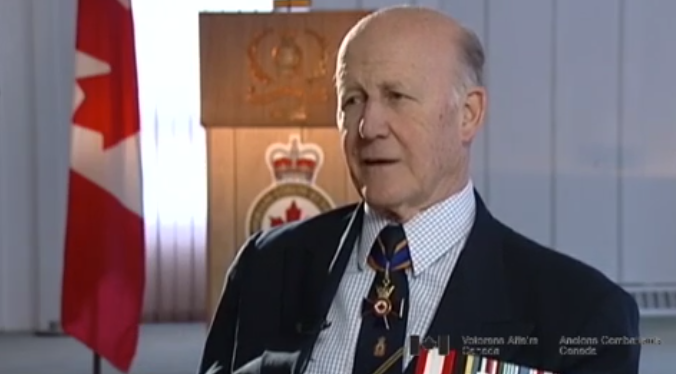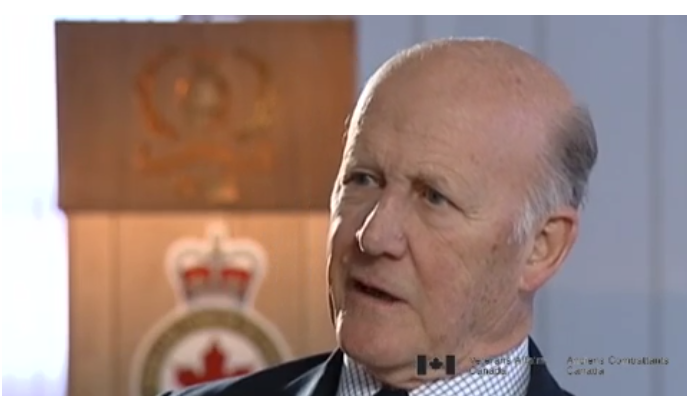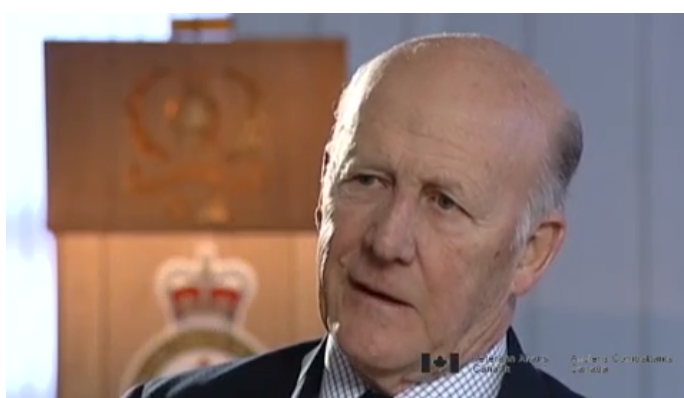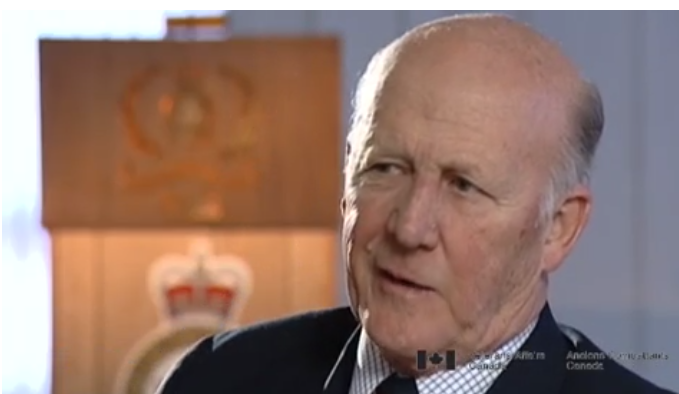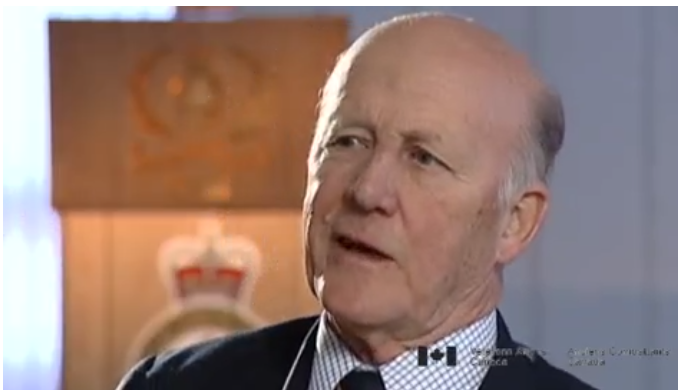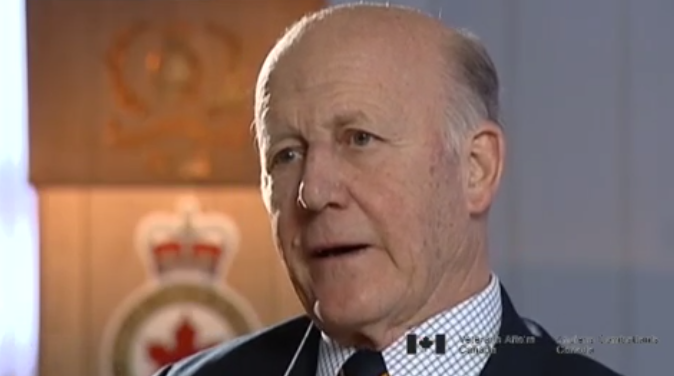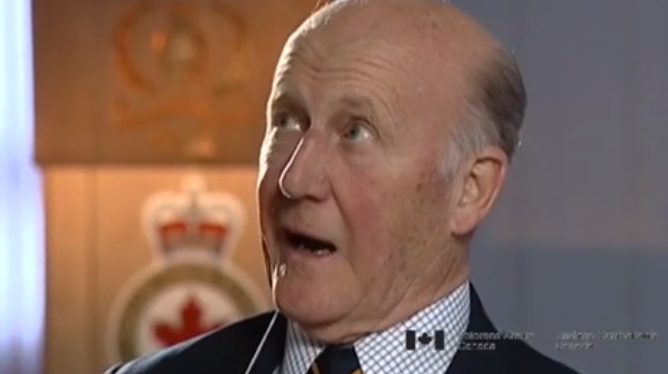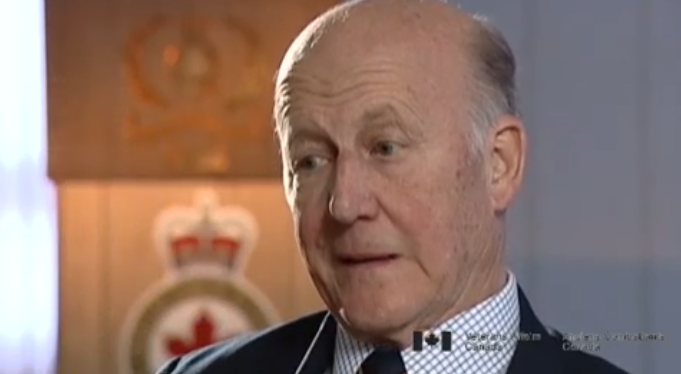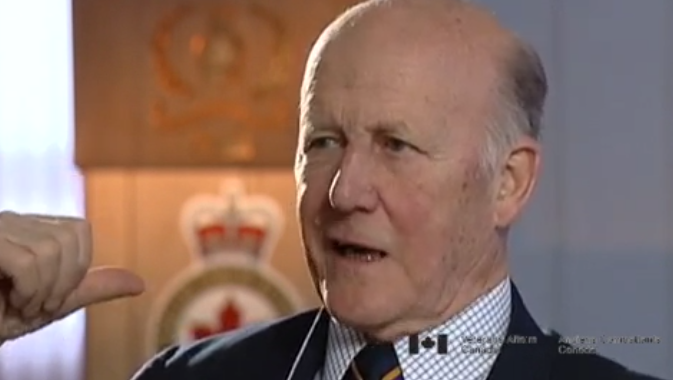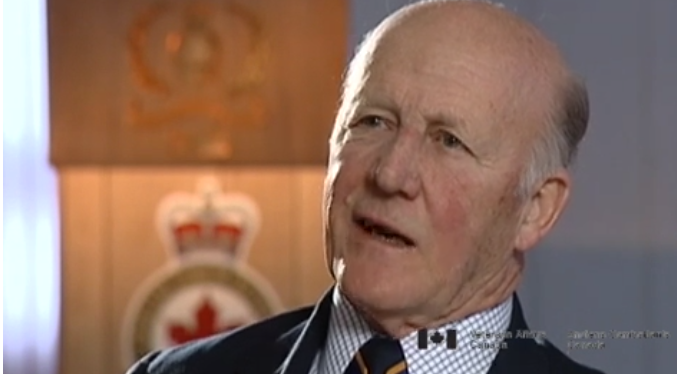Diplomacy, I guess, doesn’t necessarily have a rank. I mean,
if your in a foreign country, we used our soldiers as diplomats
in Korea when we built schools for them. I’ve seen it applied by
battalions, the VanDoos in Haiti three times because I was their
honorary colonel then and I would travel to Haiti to visit them
and often pin their medals on their chest because they had done
ninety days or something. And I would go out with one of their
patrols near Cité Soleil in Port-au-Prince then I would go into
the hills and I would see Canadian soldiers working at a small
building. I said, “Well, lets go in and see what they do.”
And I meet a Sergeant Dumont or something that’s organizing a
school. He’s building a school. He and his guys on a bit of spare
time have gone to a local village and say, “You know, I notice
your children are not going to school anywhere. So we’ll help
you build one.” So they would do that. Well that’s diplomacy.
That’s a diplomat! And you don’t have to have an official
appointment to do that and, in fact, because of their approach,
which is trying to all the time gain the respect of the people
that you’re there assumably to protect but also in certain cases
to stop from hurting the other one, you interposition yourself to
try the classical ‘peace making’ if you want. That forces you in
to that kind of position. I think Canadians are particularly good
at that. We pay the price sometimes because we travel in lighter
vehicles. So if you have a mine, you know, it’s easier to get
killed in a jeep-sized vehicle but on the other hand if you’re in
a big armoured vehicle, you don’t talk to the kids. You don’t
talk to anybody. You’re just a great big strength moving around.
And you may be intimidating but your not making friends with them
You’re not gaining support of the population. So somewhere in
there, there’s got to be a balance between the two. You need your
own security, you need to be protected because of the kind of
tactics that some, you know, insurgent’s, for instance, are using
now in places like Afghanistan and Iraq but at the same time
you must also realize that you lose out on the side of trying
to be able to help people. And I think that the Canadians are
particularly good at that latter part at every level; CO’s...
We’re approachable. Not scratching ourselves on the back.
I think it’s a statement of truth. We’re an approachable people.
Most people react to this more positively than they would to just
great big guns flailing around all the time. But you won’t stop
the insurgent’s that way necessarily, but you gotta be prepared
to do both. That’s why today they’re talking about developing
more and more the drills or the doctrines - what we called the
three block war. Well, three block war means that within a few
blocks in the city you can have some people doing some
humanitarian working and have people fighting for their own
survival, you know, and the other ones are doing something else,
you know, they’re preventing somebody from coming in so you
just . . . we’ve always done that to a certain extent. We didn’t
have a term for it. We didn’t call it the three block war but in
the early days of Cyprus or in ‘74 it was very much the same sort
of things we did. And, in fact, after the cease fire in Korea it
was the same sort of things. We built schools, our medics
would go to their villages in Cyprus, we’d do medical inspection
of their facilities, we’d test their waters and things like
this. We’d do all that. And, but we didn’t have a name for it.
We just thought, “Well, that’s just what a soldier does
when he doesn’t need his rifle.”



